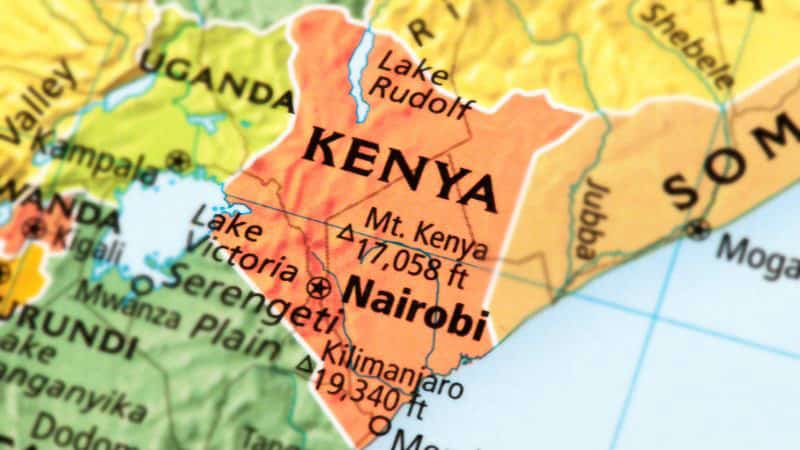
China and Kenya had a stable relationship for many years. When considering shipping from China to Kenya, you need to be familiar with the basics, key routes, and the main ports and airports that facilitate this trade.
This article will provide an overview of the shipping process from China to Kenya and explore some of the considerations for businesses transporting cargo between the two trading.
We will first look at the different transportation methods available and then discuss important paperwork requirements like commercial invoices and packing lists. You will also see other important aspects that affect times and costs.
If you are looking for shipping agents to help you complete this task, please contact Luckystar Logistics. We are professionals in logistics and offer ocean and air freight services at incredible prices.
Choosing the Right Shipping Method
When shipping from China to Kenya, you need to consider your priorities, whether it’s speed, cost, or the nature of your goods. Here’s how to choose the right shipping method for your needs.
Comparing Sea Freight and Air Freight
Sea Freight is your go-to option for significant cost savings, especially when shipping larger volumes. Ocean freight delivers your cargo via container ships, which takes longer but is substantially more economical than air freight.
- Pros: Cost-effective for large shipments, eco-friendlier than air travel.
- Cons: Slower transit times, subject to port delays.
When talking about sea freight, you must have heard about FCL and LCL.
- FCL ( Full Container Load) refers to having exclusive use of an entire 20ft or 40ft shipping container for your cargo. It is best suited for large volume shipments, usually >15 CBM or >15 tons. The container is loaded at the origin and unloaded at the destination, with no need to consolidate or deconsolidate with other cargo.
- LCL( Less Than Container Load) refers to shipping smaller volumes that do not require a full container. It is best for shipments <15 CBM that cannot justify a full FCL container. The cargo is consolidated with other shipments in a container at the origin pot.
Air Freight steps in when you need your goods quickly. It’s the best choice for urgent deliveries or high-value products that require fast and reliable transport.
- Pros: Fast and reliable for urgent shipments.
- Cons: Higher costs, especially for heavier or bulkier goods.
Understanding Rail and Road Options When Ship From China to Kenya
Rail Freight can be a middle ground between air and ocean freight, offering a balance of speed and cost, particularly for intra-continental shipping. However, it’s not as widely available for direct transportation from China to Kenya.
Road Freight offers door to door shipping service, providing a continuous delivery experience. This can be combined with sea or air freight to complete the delivery from the port to your doorstep.
- Pros: Door to door delivery, flexible routes.
- Cons: Can be slower and less efficient over long distances.
When to Use Express Shipping Companies
For Express Shipping Companies, turn to them when time is of the essence. They are experts in managing airfreight and provide door to door solutions, ensuring a swift and secure transport of your goods.
- Pros: Ideal for urgent, less bulky, or high-value items.
- Cons: Costlier compared to traditional sea or rail freight options.
By understanding these options and assessing your specific shipping needs, you can make an informed decision on the most suitable method to transport your goods from China to Kenya.
Main Air and Sea Ports in the Two Countries
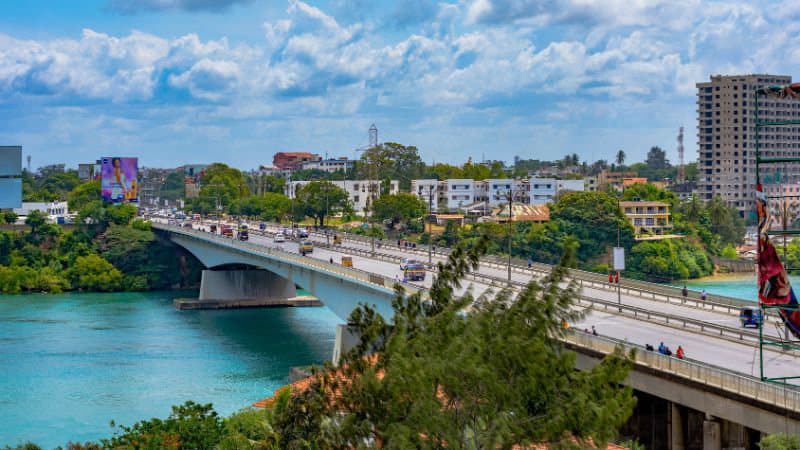
Main Airports in China
| Airport | Introduction |
| Beijing Capital International Airport (PEK) | Located in Beijing, it is China’s busiest airport and main international aviation hub, with flights to over 230 destinations. It served over 100 million passengers in 2019 across its three terminals. PEK links China to major cities globally. |
| Shanghai Pudong International Airport (PVG) | Located in Shanghai, it is one of China’s largest airports, serving over 80 million passengers in 2019. With two terminals, it offers flights to about 210 destinations, including key cities in China, Asia, Europe, and North America. |
| Guangzhou Baiyun International Airport (CAN) | Located in Guangzhou, this airport serves as the main hub for China Southern Airlines. With two terminals, it handled over 70 million passengers in 2019 and offers flights to more than 220 destinations around the world. |
Main Seaports in China
| Country | Port | Key Facts |
|---|---|---|
| China | Port of Shanghai | – World’s largest container port– Handled over 40 million TEUs in 2019 |
| China | Port of Shenzhen | – One of the world’s busiest container ports– Handled over 25 million TEUs in 2019 |
| China | Port of Ningbo-Zhoushan | – World’s largest port by cargo tonnage at 1 billion+ tons annually |
| China | Port of Qingdao | – Major port in eastern China– Handled over 18 million TEUs in 2019 |
Main Airports in Kenya
JKIA is the larger airport located near Nairobi serving as a hub for Kenya Airways. It has higher passenger and cargo capacity compared to MIA in Mombasa, which is the second largest airport in Kenya.
Here is a summary table comparing the two main international airports in Kenya:
| Airport | Jomo Kenyatta International Airport (JKIA) | Moi International Airport (MIA) |
|---|---|---|
| Location | 15km from Nairobi | Mombasa |
| Passenger Capacity | Over 7 million annually | 1.6 million annually |
| Runways | 2 parallel runways for wide-body aircraft | 1 runway |
| Airlines Hub | Hub for Kenya Airways | – |
| Cargo Capacity | Over 100,000 metric tonnes annually | – |
| Nearby Attractions | Nairobi National Park, Giraffe Centre, Karen Blixen Museum | Haller Park, Fort Jesus, Mamba Village |
Main Seaports in Kenya
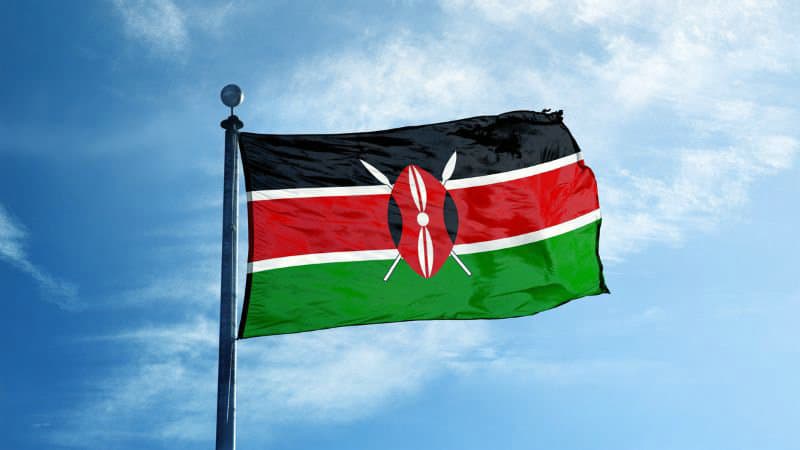
| Port | Location | Details |
|---|---|---|
| Port of Mombasa | The eastern coast of Kenya | The largest and busiest port in East Africa. Handles containerized cargo, bulk cargo, oil, etc. |
| Port Reitz | Part of Mombasa Port | Old port, now used as an oil terminal |
| Port of Lamu | Lamu County | The new port under construction, will be larger than Mombasa Port |
| Port of Kilifi | Kilifi County | Exports cashews, handles fishing boats and dhows |
| Port of Mtwapa | Kilifi County | Exports cashews and coconut products |
| Port of Shimoni | Kwale County | Fishing port handles dhows |
| Port of Malindi | Kilifi County | Exports copra, simsim; handles fishing boats and dhows |
| Port of Kiunga | Lamu County | Dock that handles fishing boats |
| Port of Kisumu | Kisumu County | Port on Lake Victoria, handles exports and imports with neighboring countries |
Ocean and Air Cargo Routes and Shipping Costs from China to Kenya
Shipping Routes and the Shipping Time
Generally, the most popular and cost-effective option is direct sea freight from China to the port of Mombasa in Kenya, taking about 17-35 days in transit. Air freight is faster at 5-12 hours but more expensive. Land routes are possible but take over 30 days – so sea and air are more competitive for most cargo.
Sea Freight:
- Direct shipping from ports like Shanghai/Ningbo to Mombasa: 17-20 days (port-to-port), 25-35 days (door-to-door)
- From China to East Africa ports like Dar es Salaam then overland: 20-30 days
- Routing shipments around Africa: Over 30 days
Air Freight:
- From major airports like Guangzhou to Nairobi: Around 12 hours
- Most air freight routes: 5-10 days
Land/Rail Freight:
- Overland through Southeast Asia into Kenya: Over 30 days
| Rute | Transit Ports/Points | Transit Time |
|---|---|---|
| Sea – Ningbo/Shanghai to Mombasa | Direct | 17-20 days |
| Sea – China to Djibouti/Dar es Salaam | Djibouti or Dar es Salaam | 20-30 days |
| Sea – Southern China around Africa | Via the Indian Ocean and Cape of Good Hope | Over 30 days |
| Air – Guangzhou to Nairobi | Direct | ~12 hours |
| Air – Changsha to Nairobi | Direct | ~12 hours |
| Land – Southern China to Kenya | Vietnam, Laos, Myanmar | Over 30 days |
Freight Shipping Costs
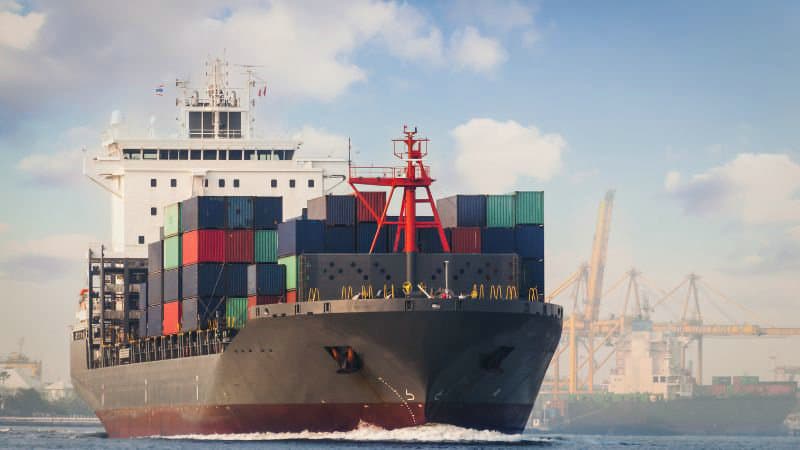
Freight costs depend on the choice of transport. Shipping containers by air freight from China to Kenya is definitely more expensive than shipping by sea. The costs from China to Kenya are also influenced by factors like distance, weight, and volume of your goods.
Sea shipping is notably more cost-effective for larger shipments, but it takes longer. Here are typical costs you should expect:
Air shipping is the fastest way you can rely on when you want to ship time-limited goods.
Sea Freight Costs
| Route | Method | 20ft Container | 40ft Container | Other Unit | Cost Estimate |
|---|---|---|---|---|---|
| Ningbo/Shanghai to Mombasa | FCL Shipping | $1,500 – $2,000 | $2,500 – $3,500 | ||
| Ningbo/Shanghai to Mombasa | LCL Shipping | Per cubic feet | $7 – $10 | ||
| China to Djibouti/Dar es Salaam | FCL Shipping | $1,800 – $2,500 | $3,000 – $4,000 | ||
| China to Djibouti/Dar es Salaam | LCL Shipping | Per cubic feet | $9 – $12 | ||
| China to Mombasa (via Africa) | FCL Shipping | $2,100 – $2,800 | $3,500 – $4,500 | ||
| China to Mombasa (via Africa) | LCL Shipping | Per cubic feet | $11 – $14 |
Air Feight Cost
| Origin | Destination | Airline Options | Estimated Cost |
|---|---|---|---|
| Beijing | Nairobi | Air China, Kenya Airways, Ethiopian Airlines | $3.40 – $4 per kg |
| Shanghai | Nairobi | Air China, Kenya Airways, Ethiopian Airlines | $3.20 – $3.80 per kg |
| Guangzhou | Eldoret | RwandAir, Kenya Airways | $3.60 – $4.20 per kg |
| Hangzhou | Kisumu | Emirates, Qatar Airways | $3.80 – $4.50 per kg |
*Please note that the rates shown are only estimates to provide an indication of pricing. Actual quotes will vary depending on the specific details of the shipment, such as the goods, weight, dimensions, delivery timeline, and other requirements.
We work with each customer individually to develop customized shipping solutions tailored to your needs and budget and offer you the best shipping freight service. You can expect competitive pricing that aims to deliver great value.
Please contact us to discuss your shipping needs – Luckystar looks forward to putting together an unexpected price for you. We will offer you the cheapest way to ship your goods, we are your most trustworthy shipping company.
Insurance and Additional Fees
Securing your shipment is important. Insurance options can protect against loss or damage, but premiums vary. To keep costs down, seek out low insurance premiums and consider whether higher coverage is necessary for your goods. Remember that the commercial invoice and packing list are key documents that may affect insurance and additional fees.
Additional fees may include:
- Handling charges at ports or airports
- Customs brokerage fees
- Local delivery costs within Kenya
Import Tax in Kenya
When you’re importing goods from China to Kenya, understanding the import tax structure is key. Your shipment’s cost can significantly increase due to taxes, so it’s essential to budget accordingly. Here’s a breakdown of import taxes:
- Customs Duty: This is a tax levied on goods imported into Kenya. The rate is determined by the East African Community Common External Tariff and varies according to the type of goods. Generally, it ranges from 0% to 100%, with an average rate of around 25%.
- Import Declaration Fee (IDF): You’ll be charged an IDF on all imports, which is 2.25% of the Cost, Insurance, and Freight (CIF) value or a minimum of Ksh. 5,000 – whichever is higher.
- Value Added Tax (VAT): Your imported goods are also subject to VAT at the standard rate of 16% of the CIF value plus any custom duties and excise taxes (if applicable).
- Excise Duty: For specific goods, excise duty is charged in addition to customs duty and VAT. The rates differ based on the item category.
- Railway Development Levy (RDL): This levy supports the development of railway infrastructure in Kenya. It’s pegged at 1.5% of the CIF value of the imported goods.
- Miscellaneous Fees and Levies: Depending on the nature of your imported goods, there may be other fees and levies, such as the Anti-Counterfeit Agency Fee or Standards Levy.
- Customs Bonds: For goods transiting through Kenya to neighboring countries or those to be kept in a bonded warehouse, you will need to execute a customs bond.
To avoid surprises upon your goods’ arrival in Kenya, ensure you calculate these taxes in advance. Working with a reputable clearing agent can help streamline the process, ensuring you comply with all tax regulations.
Prohibited and Restricted Items When Transporting Goods From China to Kenya
When you’re shipping goods from China to Kenya, it’s crucial to understand the regulations that may affect your shipment. Kenya has specific prohibitions and restrictions that you need to be aware of to ensure a smooth process.
Prohibited Items: These items are not allowed into Kenya under any circumstance. Shipping them could result in confiscation, fines, or other legal action.
- Counterfeit money and goods
- Illegal drugs and narcotics
- Pornographic material
- Hazardous waste materials
- Any goods infringing on Kenyan intellectual property laws
Restricted Items: Restricted items may be allowed entry into Kenya, but they often require special permits or are allowed under certain conditions.
- Firearms and Ammunition: You must have a police permit and other relevant licenses.
- Plants and Plant Products: A phytosanitary certificate is required to prevent the spread of pests and diseases.
- Animals and Animal Products: An import permit from the Kenya Department of Veterinary Services is necessary.
- Medication: Personal medication needs a prescription, and commercial imports require approval from the Pharmacy and Poisons Board.
Customs and Documentation
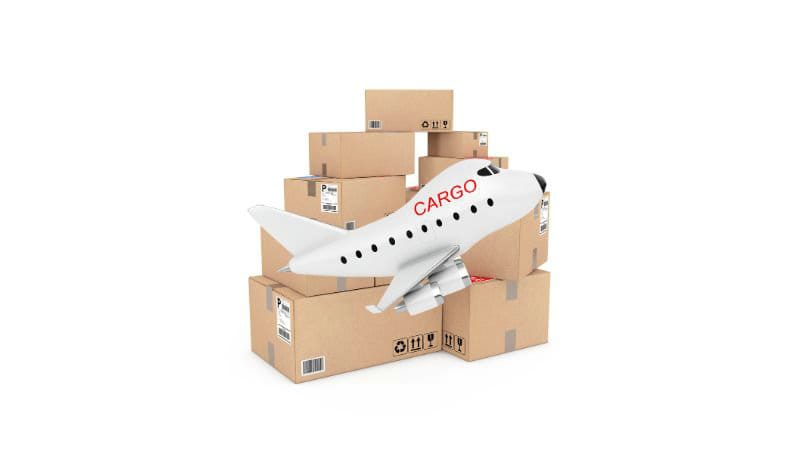
When you ship a container from China to Kenya, it’s essential to grasp the intricacies of customs clearance and the documentation necessary to ensure a smooth process. These documents are required by law, so you must give a deep understand.
Navigating Customs Clearance
Getting your goods through customs without delays hinges on understanding the procedures and fees involved. Customs clearance in Kenya requires the accurate valuation of goods, calculation of taxes and duties, and adherence to import regulations. As an importer, you must be familiar with the Incoterms agreed upon in your purchase contract, like FOB (Free on Board), which defines the cost division between you and the seller.
Required Documentation for Importers
For every shipment entering Kenya, you’re required to produce a set of documents to comply with the local regulations.
- Commercial Invoice: This details the transaction between you and the seller, providing a description, value, and quantity of the goods.
- Certificate of Origin: Issued by the exporter, it certifies the country in which the goods were manufactured.
- Packing List: Outlines exactly what is in the cargo, corresponding with the commercial invoice.
- Import License: Kenya might require you to have an import license for certain goods, so check with the local authorities.
- Import Declaration Form (IDF): The IDF provides details about the shipment such as a description of the goods, value, weight etc. It is required by Kenyan customs.
- Bill of Lading/Air Waybill: The bill of lading or air waybill serves as a shipment receipt and document of title. It contains details about the freight, route etc.
- Insurance Policy: Marine insurance is required to protect the goods in transit in case of damage or loss.
Ensuring Compliance with Regulations
Strict adherence to international trade and Kenyan regulations is non-negotiable to avoid legal issues or shipment confiscation. Familiarize yourself with the list of prohibited and restricted items in Kenya and ensure your goods are not on this list. Your customs clearance agent can guide you through the specific regulations that apply to your shipment, including Asia–Africa trade agreements that might affect duty rates. Documentation such as the certificate of origin might help reduce the customs tariff if preferential treatment applies.
Additional Considerations for Shipping
When shipping from China to Kenya, paying attention to the details can make a significant difference in your shipping experience. From handling specialized cargo to seamless communication, ensure your goods arrive safely and efficiently.
Handling Specialized Cargo
When dealing with specialized cargo such as electronics, pharmaceuticals, or vehicles, it’s critical to partner with the freight forwarding who have the experience and capability to handle such goods. Specialized cargo like pharmaceuticals may require temperature control, while electronic items may need extra protection due to their fragility. Make sure your shipping option provides ample insurance to cover any potential damage or loss.
Communication and Tracking
Maintaining robust communication with your freight forward is key to a smooth shipping process. Real-time updates can help you plan ahead and reduce the need for storage on arrival, ensuring that your shipment, whether it’s housing appliances or watches, is always accounted for.
Why Choose Us? Luckystar Logistic
Established in 2022, Luckystar is an esteemed member of the Federal Maritime Commission (FMC) and operates as a Non-Vessel Operating Common Carrier (NVOCC). The company’s mission is to deliver superior service quality at reduced costs, primarily serving China, the USA, Canada, and Europe. With core team members boasting over 20 years of experience in logistics, Luckystar brings considerable expertise to the table. Since its inception, the company’s services include global door-to-door transport and logistics solutions, emphasizing dependability, adaptability, and responsiveness.
We’re not just a freight forward company; we are experts in transportation! Offering industry-leading solutions, we take pride in providing premium shipping services at a fraction of the cost of other freight forwarders, both in China and across the globe. Trust us, we offer the best services to our clients. Here’s why partnering with us is the smart move:
Accuracy You Can Count On:
Say goodbye to delivery delays and hello to timely delivery, which is vital for businesses needing to deliver goods swiftly to their customers.
Your Passport to Global Reach:
Our wide network of delivery destinations virtually covers the entire globe, offering extraordinary opportunities for businesses aiming to expand their reach. You can be assured that your package will find its way to almost any corner of the world, taking your business global!
Track with Ease:
Say goodbye to guesswork. Our stringent procedures afford you a live tracking mechanism, making it easy for you to follow your shipment’s progress at every stage of its journey. Stay informed and enjoy peace of mind, knowing exactly where your shipment is anytime you need to know.
Personalized Service, Every Step of the Way:
One of our dedicated team members will personally oversee your shipment from start to finish. This, coupled with our commitment to transparency and constant communication, ensures you are kept updated on the progress of your cargo every step of the way.
When shipping hazardous materials, it’s crucial to work with experienced service providers to ensure that your shipment is handled safely and efficiently. By partnering with us, you can have peace of mind knowing that your shipment is in good hands.
Are you looking for an experienced freight forwarder to assist you in shipping? Contact us. We’re always ready to help. Offering the unbeatable cheapest shipping rates for international shipping, our services are more affordable than you’d believe. We offer the best freigt services, don’t hesitate! Get in touch with Luckystar Logistics today.
